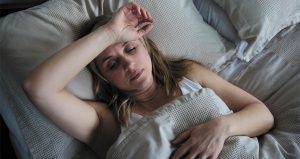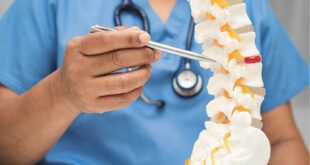 Varicose veins are a common venous disorder characterized by enlarged, twisted veins that usually occur in the legs. While varicose veins are primarily associated with cosmetic concerns and potential complications such as pain and swelling, their impact on sleep quality is often overlooked. This article aims to explore the relationship between varicose veins, venous insufficiency and sleep disturbances,
Varicose veins are a common venous disorder characterized by enlarged, twisted veins that usually occur in the legs. While varicose veins are primarily associated with cosmetic concerns and potential complications such as pain and swelling, their impact on sleep quality is often overlooked. This article aims to explore the relationship between varicose veins, venous insufficiency and sleep disturbances,
supported by relevant research and scientific
citations.
• Restless Legs Syndrome (RLS): One of the major contributors to sleep disruption in individuals with varicose veins or venous insufficiency is Restless Legs Syndrome (RLS). RLS is a neurological disorder characterized by uncomfortable sensations in the legs, often accompanied by an irresistible urge to move them. Research has established a strong association between varicose veins and RLS, with a higher prevalence of RLS reported among individuals with venous insufficiency.1 The symptoms of RLS can intensify during periods of inactivity or in the evening, making it difficult for individuals to fall asleep or maintain sleep.2
• Nocturnal Leg Cramps: Varicose veins have also been linked to nocturnal leg cramps, a condition characterized by sudden, painful muscle contractions in the legs during sleep. Studies have demonstrated a positive correlation between the severity of varicose veins and the frequency of nocturnal leg cramps.3 These cramps can cause abrupt awakenings and may lead to subsequent difficulties in returning to sleep, ultimately disrupting overall sleep quality.
• Sleep Disruptions Due to Pain: Varicose veins and venous insufficiency can cause pain and discomfort, particularly during prolonged periods of standing or sitting. The pain associated with varicose veins often worsens during the night, interfering with sleep initiation and maintenance. A study conducted by Engstrom et al. found that individuals with varicose veins reported higher levels of pain and experienced more sleep disturbances compared to those without the condition.4 Chronic pain resulting from varicose veins can lead to increased sleep fragmentation and a higher risk of developing insomnia symptoms.
• Impact on Sleep Architecture: Sleep architecture refers to the various stages of sleep, including rapid eye movement (REM) sleep and non-rapid eye movement (NREM) sleep. Varicose veins have been associated with alterations in sleep architecture. A study by Monasterio et al. found that individuals with varicose veins had reduced REM sleep and increased wakefulness during sleep.5 These disruptions can affect the restorative nature of sleep, leaving individuals feeling less refreshed upon waking.
While varicose veins and venous insufficiency are commonly acknowledged for their impact on physical well-being, their influence on sleep should not be underestimated. Research has shown that varicose veins contribute to sleep disturbances, such as Restless Legs Syndrome, nocturnal leg cramps, pain-related sleep disruptions, and alterations in sleep architecture. Understanding the relationship between varicose veins and sleep can help healthcare professionals develop effective management strategies and improve the overall well-being of individuals affected by this condition.
Get Support for Your Varicose Veins and Venous Insufficiency Today
You may find that you need medical treatment for your varicose veins, and Central Florida Vein and Vascular Center wants to help. Visit CFVein.com for more information about how varicose veins impact sleep and other expert advice related to healthy, pain free legs.
CENTRAL FLORIDA VEIN AND VASCULAR CENTER
(352) 562-0078 . www.cfvein.com
13953 NE 86th Terrace, Unit 101
Lady Lake, FL 32159
MOST PROCEDURES ARE
COVERED BY INSURANCE
Convenient Golf Cart Path Access
References:
1. Allen RP, et al. Restless legs syndrome prevalence and impact: REST general population study. Arch Intern Med. 2005;165(11):1286-1292.
2. Amorim RL, et al. Restless legs syndrome: prevalence and impact on sleep of primary care patients in a large urban setting. Sleep Med. 2010;11(3):262-266.
3. Katzberg HD, et al. The relationship between veins and nocturnal leg cramps. Muscle Nerve. 2012;45(1):24-29.
4. Engström M, et al. The effect of treatment with intermittent pneumatic compression on venous symptoms, pain and quality of life in patients with varicose veins in primary care: a randomized controlled trial. Phlebology. 2015;30(2):106-113.
5. Monasterio C, et al. Poor sleep in patients with chronic venous disease: association with psychological distress and quality of life. Thromb Haemost. 2015;114(6):1264-1273.
 Central Florida Health and Wellness Magazine Health and Wellness Articles of the Villages
Central Florida Health and Wellness Magazine Health and Wellness Articles of the Villages



